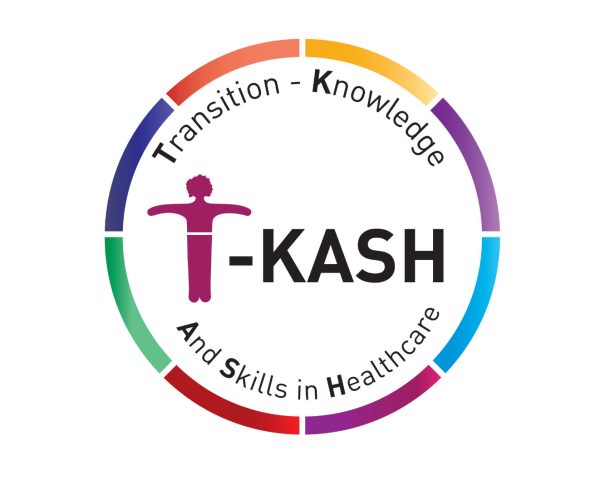Having a disability or complex condition can sometimes make living independently and traveling a challenge but with the right support and planning this can be overcome. In this section we have brought together useful resources to support you to stay independent.
Many local authorities have their own specific information about independent living services in your local area. This is often a good place to start if you would like to know what services are available locally for you.
All about Independent Living
Disability Rights UK offer a range of factsheets about independent living. These can be viewed here.
Guide Dogs for the Blind provide guide dogs which have been trained to help people affected by visual impairments to live independently. Guide dogs can benefit both children and adults, by increasing confidence, self-esteem, independence and mobility. Guide Dogs for the Blind also offer a range of services such as family events, family grants, mobility training, education and family support and offer a sighted guide service for adults. They also offer CustomEye books which can be produced specifically to suit your child or young person.
All about Rail Travel
National Rail offer assistance to enable passengers with disabilities to travel. You can book to get help at any station for any train journey.
The train company can organise for someone to:
• meet you at the entrance or meeting point and accompany you to your train
• provide a ramp on and off your train if you need one
• meet you from your train and take you to your next train or the exit
• carry your bag (up to three items of luggage as per the National Conditions of Travel)
You can book help at short notice, but some companies may ask for up to 24 hours’ notice. You only need to contact one train company and they will organise assistance for your whole journey. You can book assistance by phone or online with the company directly or centrally via the links and numbers below:
• disabledpersons-railcard.co.uk/travel-assistance/
• 0800 022 3720
• 0845 60 50 600 textphone/minicom
You won’t have to pay extra if you can’t buy your ticket before getting on the train due to your disability.
Disabled Rail Card and Discounts
You can get a 1/3 off with a Disabled Persons Railcard for travel on the National Rail network in Great Britain. If there is another adult travelling with you, they can also get 1/3 off their rail fare. You can use your rail card to get discounts any time of day and costs £20 per year. Further information can be found here
If you don’t have a disabled rail card but are blind or visually impaired and need to travel with another person, you can get the following discounts:
- First Class or Standard – Anytime Single or Return – 34%
- First Class or Standard – Anytime Day Single – 34%
- First Class or Standard – Anytime Day Return – 50%
These discounts won’t apply if you travel on your own.
Season Tickets for blind or visually impaired people
If you are blind or visually impaired, you can buy one adult Season ticket that enables a companion to travel with you on National Rail services only at no extra cost. It doesn’t have to be the same person travelling with you on every journey.
You will need evidence of your visual impairment such as a document from a recognised institution such as Social Services, your Local Authority, The Royal National Institute for the Blind (RNIB) or St Dunstans when buying your ticket and making your journey.
These tickets can be bought from staffed National Rail station ticket offices.
Further information about these services can be found here
All about Bus and Underground Travel
If you are affected by a disability you can apply for a Freedom Pass which allows free travel across London on bus and underground and free bus journeys nationally. You can find more information, including eligibility and how to apply HERE
You will need to contact your local authority to check who issues bus passes for those who have disabilities. If you are eligible you will receive a bus pass for free travel anywhere in England.
Passes from councils in England can be used anywhere in England:
- at any time on a Saturday, Sunday or bank holiday
- from 9:30am to 11pm on any other day
All about Motors
The charity, Contact for Families with Disabled Children offer comprehensive information about the blue badge scheme and how to apply. This is usually done through your local authority.
A blue badge costs up to £10 in England and £20 in Scotland, it is free for people residing in Wales. They usually last 3 years before you need to reapply.
New rules will come into force from the 30th August 2019 which will take into account hidden disabilities as well as many people now being able to automatically qualify if they meet specific rules. You can read the full information here
The Government have also announced a new online system which means applicants can complete the whole process online, hopefully making it easier and quicker to apply.
To apply online you will need a photo or scan of your:
- proof of identity (such as a birth certificate, passport or driving licence)
- proof of address (such as a Council Tax bill or government letter)
- proof of benefits (if you get any)
You will also need to provide a recent digital photo showing your head and shoulders.
You’ll also need to know:
- your National Insurance number (if you have one)
- the details of your current Blue Badge (if you’re reapplying)
You can find further information and apply online here
Motability
The Motability Scheme enables people with disabilities to get mobile by exchanging their mobility allowance to lease a new car, scooter, powered wheelchair or Wheelchair Accessible Vehicle. You may be eligible to join the Scheme if you are in receipt of a higher rate mobility allowance.
All about Taxi’s
If you live in London and are affected by a severe mobility impairments or a severe sight loss, you can apply for a Taxicard which will enable reduced taxi fares. Full information about the taxicard can be found HERE
If you travel with an assistance dog they must be allowed into the taxi or minicab with you, unless the driver has an exemption certificate. This can be issued if they’ve got a medical condition made worse by contact with dogs.
A driver with an exemption certificate will have a yellow ‘Notice of Exemption’ notice on their vehicle windscreen.
It’s illegal to be charged extra to travel in a taxi or minicab with an assistance dog. Otherwise the driver could be fined up to £1,000.
The following types of dog can be taken with you in taxis or minicabs:
- guide dogs trained by the Guide Dogs organisation
- hearing dogs trained by Hearing Dogs
- assistance dogs trained by Dogs for the Disabled, Support Dogs or Canine Partners
Jetting off, high in the skies
It is essential that you let your airline know at least 48 before you travel if you will need assistance. Airlines and airports have different facilities for disabled people. Find out from your airport or airline if they have the facilities you need, for example a toilet with disabled access.
If you have a sensory, physical or learning disability which affects your mobility when using transport, at airports in the UK and EU you have the right to:
- help at specific arrival points, such as at terminal entrances, at transport interchanges and in car parks
- help to reach check-in
- help with registration at check-in
- help with moving through the airport, including to toilets if you need it
You’ll also have the right to help because of your age or a temporary illness or injury – for example if you’ve broken your leg and it’s in a cast.
You can travel with up to 2 items of mobility equipment free of charge if you’re disabled. This will not count as part of your baggage allowance.
You cannot take your own wheelchair into the passenger cabin of a plane – it will be stored in the hold. Speak to your airline to find out what help they’ll provide when boarding.
You should tell your airline, travel agent or tour operator as soon as possible if you’re taking on a battery-powered wheelchair or mobility aid.
If you are travelling with a companion the airline you’re flying with will do their best to make sure you sit next to each other, so long as you tell them at least 48 hours before departure.
You have the right to travel with your assistance dog. Make sure you contact the airport to check the rules that apply.
Across the water
You can get help if you’re disabled and travelling on any of the following:
- a cruise ship that’s leaving from a port within the UK
- a ferry that’s leaving from or going to a port within the UK
- a local ferry service, for example by river bus
If you need to make specific arrangements for your journey (for example if you have certain accommodation or seating requirements), you should tell the cruise line, ferry service, travel agent or tour operator at least 48 hours before departure. You should also let the cruise line or ferry service know if you need to travel with a carer. On a ferry, your carer might be able to travel for free.






Leave a Comment